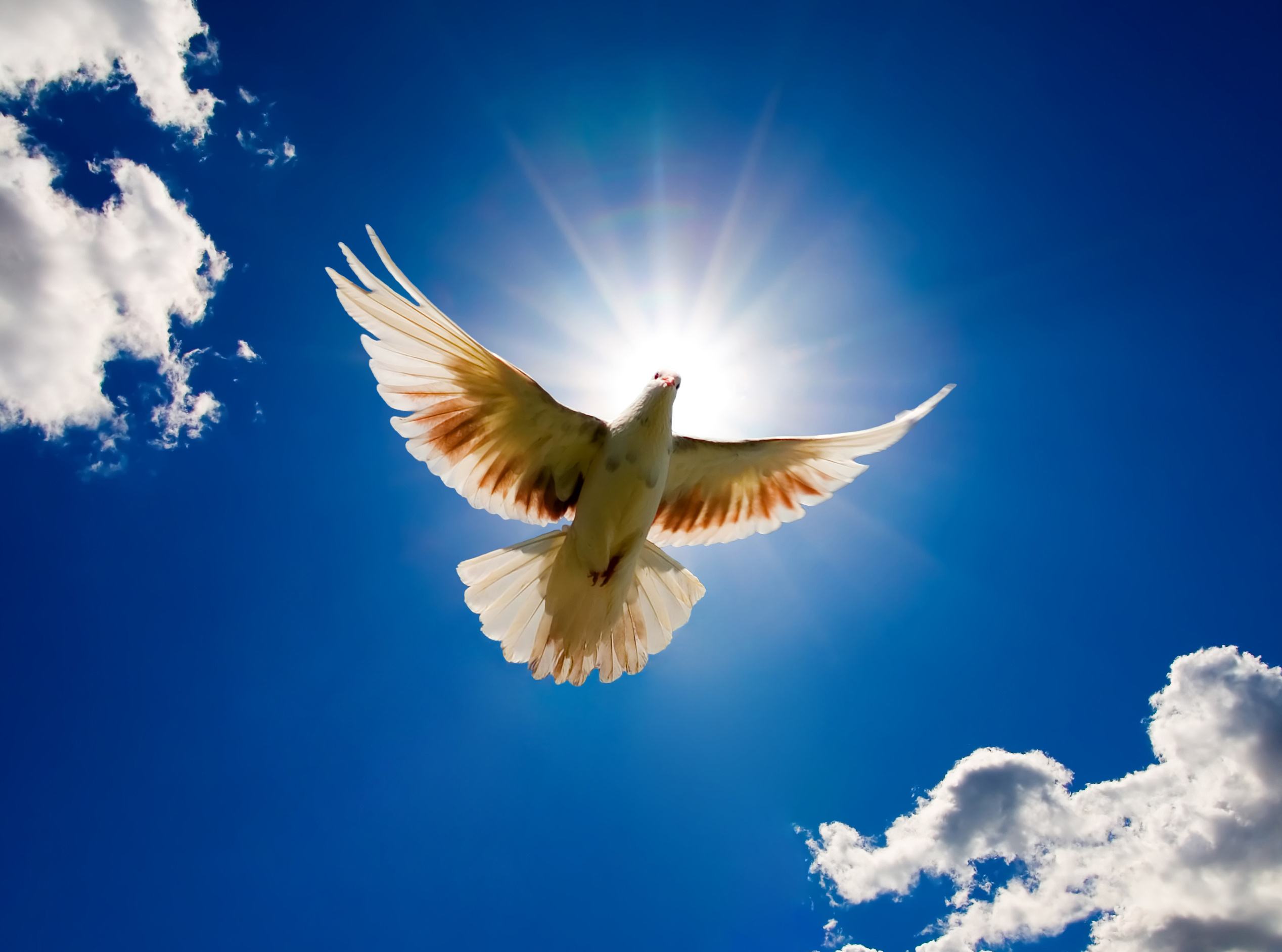Where does a nine day Novena come from? That was the question posed to me one day. Nine days represent the time of prayer between the Ascension of the Lord and the coming of the Holy Spirit upon the disciples. In prayer a Novena is a longing for the coming of the Lord, the anticipation and a realization of his return. The power of the Holy Spirit gives witness to his coming “to the ends of the earth”. Each baptized faithful is a temple of the Holy Spirit. The “two men dressed in white garments …said,…’men of Galilee, why are you standing there looking at the sky? This Jesus who has been taken up from you into heaven will return in the same way as you have seen him going into heaven.” (Acts 1:10-11) We are to look not up to the sky for him but look ahead to where he wants us to take him in our love, our actions, our kerygma, proclaiming the kingdom of God.
“The Father of glory…gave him as head over all things to the church which is his body the fullness of the one who fills all things in every way.” (Eph. 1:17, 22-23) His body given to the church which we receive in the Eucharist is in communion the fullness of all things from Jesus. His is the authority, power, and dominion above all things and in Him it is now our authority, power, and dominion called to go forth. This is the witness of disciples transformed into Apostles to go forth and heal the sick, cast out demons, have authority to forgive and be renewed in the sacramental life through his body, blood, soul, and divinity.
We long to belong. It is God’s creation, in our DNA to belong. Where we belong is a choice of daily life. We choose to belong to a family, to a community, to a house of worship. When we say “yes” to the invitation to belong to God it comes with a promise and a shared responsibility. The church says “welcome” and “go forth”. Welcome to the love of Jesus and go forth to spread God’s love to others.
Go forth into a world where there is much suffering, a world in need of the proclamation of the Kingdom of God. Where does suffering go to die? It dies where we find joy, purpose, and meaning in the calling. The calling comes from God. The calling is rooted in living our core values. Those values are in our Christian heritage, passed on by our practice of faith, our traditions, and our sacramental life. It is our inheritance to pass on and our responsibility.
There is a story of an American researcher who went to study the customs of a Japanese education system. As he sat at the back of the class doing his observation and taking notes, the teacher asked the students to draw a cube. He went around the class and found one child who had drawn it incorrectly. He asked, “Hiroshi would you like to come up to the board and draw a cube?” The boy said “yes” with excitement. After attempting to draw the cube he asked the class, “Class, did Hiroshi draw the cube correctly?” They all said “no”. The researcher felt bad for the child. The teacher asked Hiroshi, “Would you like to try again to draw a cube?” He said, “yes” and made a second attempt. The teacher asked the class, “Did Hiroshi draw the cube correctly?” The class said “no” all together. The researcher not only started to feel bad for the child but felt the anxiety and projected feelings of humiliation for the “poor” child. The teacher asked Hiroshi again, “Would you like to try again to draw a cube?” The child said, “yes” and again he did it wrong, and again he asked the class and all said “no”. By now the researcher was feeling the physical pain of this stressful activity wondering “why, put this child through this?” Once again the child was asked if he wanted to try again and he said “yes”. This time he drew it correctly. The teacher asked the class, “Did Hiroshi draw the cube correctly?” The all said “yes!” and began to clap. The ones who drew it correctly did not have a lesson to learn but the child who went through the struggle and persevered learned a life lesson beyond how to draw a cube.
Brother and sisters, the calling is to, “proclaim the word; be persistent whether it is convenient or inconvenient; convince, reprimand, encourage through all patience and teaching…be possessed in all circumstances; put up with hardship; perform the work of an evangelist; fulfill your ministry.” (2 Tim 4: 2, 5) Those called before us have finished their race and kept the faith, now it is our turn “for all who have longed for his appearance”. (2 Tim 4: 8) Go forth the Kingdom of God is at hand.




Recent Comments